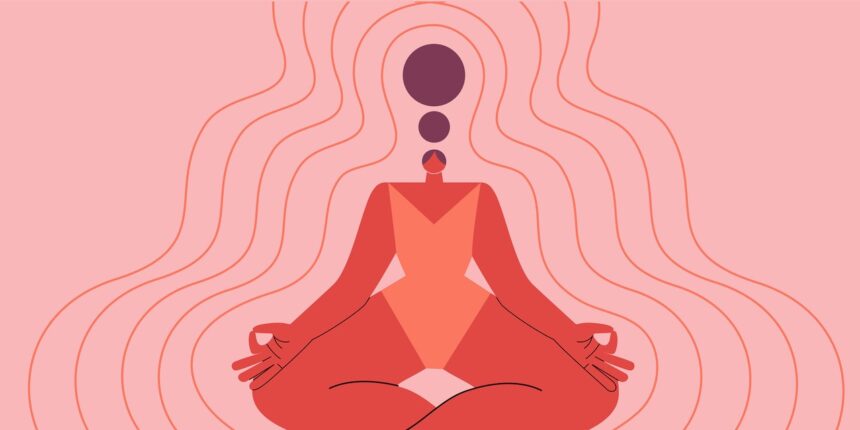So just as important as practicing acceptance, then, is building empathy, both experts suggest. Before immediately snapping, sighing loudly, or muttering a passive-aggressive comment, try pausing to consider what else might be going on first: maybe your barista’s slammed with 10 other complicated orders, for instance, or your housemate had a brutal week at work. This perspective shift can help you realize that most of life’s annoyances aren’t personal—and oftentimes, aren’t worth the tantrum.
3. Slow down your life, starting with your physical movements.
This tip probably sounds counterintuitive: When everything’s seemingly urgent or overwhelming, slowing down seems like the last thing you’d want to do. But “rushing around will only tell your body and mind, ‘Yes there is a crisis going on and it must be managed immediately!’” Dr. Gold explains. And that only makes you more annoyed, restless, and anxious.
On the flip side, when you physically slow down, your frantic brain tends to follow, according to both therapists. Maybe that involves resisting the urge to power-walk past slowpokes on the sidewalk or taking a few deep breaths before firing off hangry messages to your late delivery driver. Even just taking more time when it comes to talking, chewing, or texting in your everyday routine can do wonders in gradually building patience. “When you’re able to feel in control of your body, then you can start to cool off,” Tristan says—and that’s how you begin to think more clearly and handle whatever’s testing your patience with a little more grace.
4. Use your body to release restless energy.
Even when you’re trying your best to wait it out, impatience has a way of building up until you lose it. “It’s easy to get hot and angry and have this energy in your body that you need to release somehow,” Tristan says, which is why we sometimes snap or lash out—or at least unleash a brutal rant in the group text.
Instead, distracting your mind with something physical or sensory can help ground you (and prevent those moments you may regret), she says. Little things you can try include fiddling around with a fidget spinner at your desk after dealing with a clueless coworker, or squeezing a stress ball in your car while you’re stuck in never-ending traffic. You can also try playing with temperature, Dr. Gold recommends—sucking on an ice cube or hopping into a hot (or cold) shower. As silly as this all may sound, these body-focused exercises are research-backed ways to quickly cool down intense emotions and give your brain a chance to handle frustration more smoothly.
5. Get comfortable doing nothing (yes, really).
Becoming a more patient person doesn’t magically happen after one or two mindful moments. It requires you to consistently get used to uncertainty and boredom without complaining or grumbling, Dr. Gold says—something that’s way harder than it sounds in today’s nonstop hustle culture.
So often, “we bounce from thing to thing by habit,” Dr. Gold points out. “Wake up. Check your phone. Make coffee. Get to work.” All that constant busyness trains your brain to expect endless action—and get irritable the second things slow down. That’s why carving out intentional moments to just…be can be surprisingly powerful.
After Sunday brunch with friends, for instance, try leaving the rest of your afternoon open. No other plans, no errands, no reservations—only flexibility to relax, hang out longer, and see where the day takes you (without any pressure). Or dedicate even 10 minutes each day to completely unplug, without any phones or screens that may distract you from slow, awkward stillness.
With practice, Dr. Gold says these pauses teach your brain a powerful lesson: “that all is well, and you really do have time to spare sometimes.” The more you believe that, the less power inconveniences and delays will have over your peace of mind.
Get more of SELF’s great service journalism delivered right to your inbox.
Read the full article here



